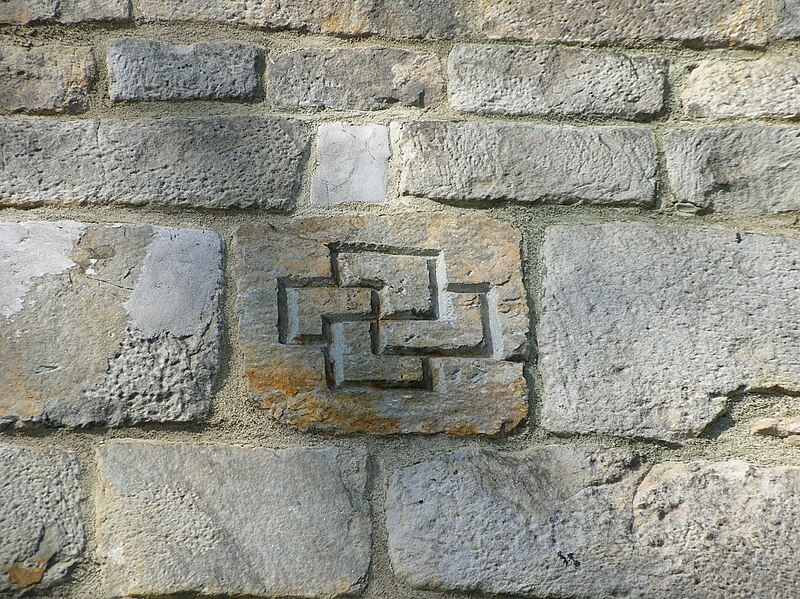
Published April 18, 2024
I recently revisited a book that I had not read for many years: Robert P. Ericksen’s Theologians Under Hitler. It is a study of how three intellectuals, Gerhard Kittel, Paul Althaus, and Emanuel Hirsch—scholars of the Old Testament, Luther, and Kierkegaard, respectively—came to support Hitler in 1933 and ultimately be identified with an evil ideology that cost millions of lives, both in the death camps and in the war that German expansionism precipitated.
It is a troubling book because, while Hirsch was always a nasty anti-Semite and remained so after the Third Reich collapsed, Kittel and Althaus started as what we might call orthodox, patriotic conservatives. The story of their corruption by Nazi ideology is a sad and disturbing one. Like Michael Corleone in The Godfather, they succumbed step by step; each step they took made sense to them, given the exigencies of the time, but the end result was catastrophic. There was a logical line from voting for Hitler to, at a minimum, standing silently by as Nazi behavior became more outrageous and systematically murderous. While I was working on Luther for my PhD, I was particularly dismayed to discover the attitude of Althaus. He was one of my scholarly heroes. How could he have been so wrong?
It is an interesting thought experiment to wonder how Christians today might have voted in Germany in the early 1930s. Hindsight grants great privileges. It not only gives us all 20/20 vision, but also exempts us from the difficult moral trade-offs and compromises that all voting booths contain in a manner unavailable to those at the time. We should not be so certain that we would have necessarily acted as we might like to imagine. It was a world where it seemed that either the Nazis or the Communists must triumph and where the full evil of both was as yet not fully visible. But even as we can acknowledge these difficulties, it is important to note that there were still theologians who did see the problem in 1933 and who refused to strike a deal with the devils on either side of the political spectrum.
The most famous example is that of the Barmen Declaration of 1934, signed by, among others, Dietrich Bonhoeffer and Karl Barth. What is disappointing about that document in retrospect is its failure to address the Nazis’ anti-Semitism, something Barth later regretted. But there was an earlier and better document that is today all but forgotten: the Bethel Confession of 1933, which Bonhoeffer had composed along with another Lutheran, Hermann Sasse. The two men were later to travel along different theological paths, Bonhoeffer being more amenable to the theology of Barth while Sasse became arguably the most important orthodox and confessional Lutheran of the twentieth century. In 1933, however, these two men saw the real problem of Nazism with a breadth and profundity not found in the Barmen Declaration.
The Bethel Confession has recently been reprinted and is well worth study and reflection. It makes clear that the reason Bonhoeffer and Sasse were able to understand their times was that they placed the transcendent God, his Word and sacraments, and his church above all earthly powers. They understood that the church was not to confuse itself with the state nor with worldly forms of power. And they knew that the church, from the world’s perspective, was necessarily weak and must not seek her own fame. Hers is the way of the cross.
Now, this confession was drafted by Bonhoeffer and Sasse. Therefore, any response like “So they just wanted us all to live in a pious huddle and let the world go to the dogs” is clearly risible. Both were active anti-Nazis and suffered for it. Bonhoeffer was martyred. Sasse’s anti-Nazi credentials were such that he was selected by the Allies to help with the de-Nazification of Erlangen University after the war. These were no passive pietists. Yet it was their grasp of the transcendent God and his gospel that immunized them to the blandishments of Hitler. They did not collapse the transcendence of God into the immanence of political exigency. And it was that very concern for the transcendent that made them wise actors in the world of the immanent.
This points to their value in today’s debates. One of the striking lacunae on both the right and left wings of the Christian political spectrum is the general absence of any reference to the transcendence of God and the supernatural nature of the church. Immanent concerns rule the day. The pundits on both sides seem more concerned with making sure that no criticism goes unmocked and no critic’s character goes unsmeared than with relativizing the affairs of this world in the light of eternity.
But the self-aggrandizing rhetoric of social media is only one part of the problem. The deeper issue is that exemplified by the contrast between Bonhoeffer/Sasse and Kittel/Althaus/Hirsch: the inability to resist collapsing the transcendence of God into the immanence of the political moment. When Christians, right and left, do that, they are no longer espousing Christianity—for Christianity that is of interest only because it is politically useful or because it is thought to work in this earthly sphere is merely a gateway drug to post-Christian paganism.
And this leads to an odd, though very Pauline, conclusion: The secret to political integrity and discernment for Christians is a high view of God, his Word and his gospel. Only when this world is set in context of the next can we hope to avoid allowing the perceived demands of our political moment to overwhelm our fidelity to God and, by way of consequence, to those made in his image.
Carl R. Trueman is a fellow in EPPC’s Evangelicals in Civic Life Program, where his work focuses on helping civic leaders and policy makers better understand the deep roots of our current cultural malaise. In addition to his scholarship on the intellectual foundations of expressive individualism and the sexual revolution, Trueman is also interested in the origins, rise, and current use of critical theory by progressives. He serves as a professor at Grove City College.











